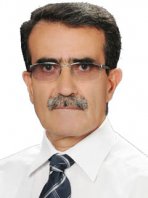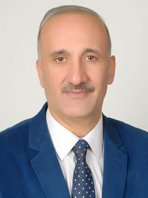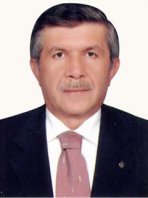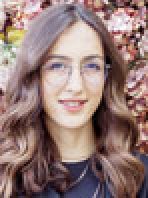Allah imtihan salonu olarak düzenlediği dünyada soruları cevaplarken en çok zıtlıklar üzerinden vasatı bulmamızı istediği usule başvuruyor.
Bu yaygın soru-cevap sistemini anlatmak üzere mantıkta bir kural konulmuştur:
"Eşya zıddıyla bilinir.” (innemal eşyae tuğrefu bi ezdediha)
Zıtları, hak ve batılı çarpıştırmadan hikmete ulaşamazsınız. Bunları çarpıştırmak için de hakkın yanında batılı da bilmeniz gerekiyor.
İfrat ve tefriti bilmeden vasatı bulamazsınız. Vasatı bulmak için ikisini de iyi tanımak zorundasınız.
Mesela; iki atasözü üzerinden beyin jimnastiği yapalım.
"Taş yerinde ağırdır.”
"Yuvarlanan taş yosun tutmaz.”
Bu ikisinin arasında vasat bir hayat hareket planımız olmalı.
"Çok gezen mi, çok okuyan mı bilir?” sorusunun cevabı ikisinin arasında "gezerken okuyan” tarzı bir cevap hikmet olsa gerek.
Tabii ki bu zıtlıklar arasında duran hikmet; kişiye özeldir.
Birinin hikmeti diğerine aynen uymaz.
Allah herkesten akıl ve kalbini aktif ve diğerini taklit etmeden, kopyalamadan, sadece yapay zekâya başvurma kolaylığına kaçmadan; bire-bir, kora-kor kendisi için, kendi çabasıyla yolunu/yolculuğunu belirlemeli.
Başkasını aynen taklit gönüllü olarak onların çakması olmak demektir.
Mevlana'nın tespitiyle "Başkasını taklit eden dağ gibi gözükse de gerçekte saman yığınıdır.”
Hayatta sıkça başvurduğumuz kısa yollar eğer altında dosyası dolu değilse bizi tehlikeli ve yanlış yollara götürebilir.
Bu sebeple hayat yolumuzu belirleyen ilkelerin "bize özel” özel çalışılmış, zıtlıklar çarpıştırılarak hikmetin bulunduğu saf hakikatler olması için; akıl ve kalbimizi birlikte ve bir ömür çalıştırmaya devam etmemiz gerekiyor.
Kısa yolların, ucuz işlerin sonunun dünyada felakete, ahirette cehenneme çıkabileceğini unutmayalım.
Finding Mediocrity Amid Opposites
While answering questions in the world He has created as an examination hall, God mostly uses the method in which He wants us to find the average through contrasts.
A rule of logic has been established to explain this common question-answer system:
"Things are known by their opposites.” (innemal goodse tuğrefu bi ezdediha)
You cannot reach wisdom without colliding opposites, truth and falsehood. In order to make them clash, you need to know falsehood as well as truth.
You cannot find mediocre without knowing the excess and the deficiency. To find mediocre, you have to know both well.
For example; Let's exercise our minds through two proverbs.
"The stone is heavy in its place.”
"A rolling stone gathers no moss.”
In between these two, we should have a mediocre life action plan.
"Who knows the one who travels a lot or the one who reads a lot?” The answer to the question must be a "reading while traveling" type of answer between the two.
Of course, the wisdom that stands between these opposites is; It is personal.
The wisdom of one does not fit the other exactly.
God asks everyone to have their minds and hearts active, without imitating or copying others, without resorting to the ease of resorting to artificial intelligence; One-on-one, kora-kor must determine his path/journey for himself, with his own efforts.
Imitating someone else means voluntarily becoming their imitation.
As Mevlana puts it, "Although the one who imitates someone else looks like a mountain, it is actually a pile of straw."
The shortcuts we frequently use in life can lead us down dangerous and wrong paths if they are not fully stocked.
For this reason, in order for the principles that determine our path of life to be pure truths that have been studied specifically for us and where wisdom is found by colliding opposites; We need to continue to exercise our minds and hearts together for a lifetime.
Let's not forget that shortcuts and cheap jobs can lead to disaster in this world and hell in the afterlife.


















